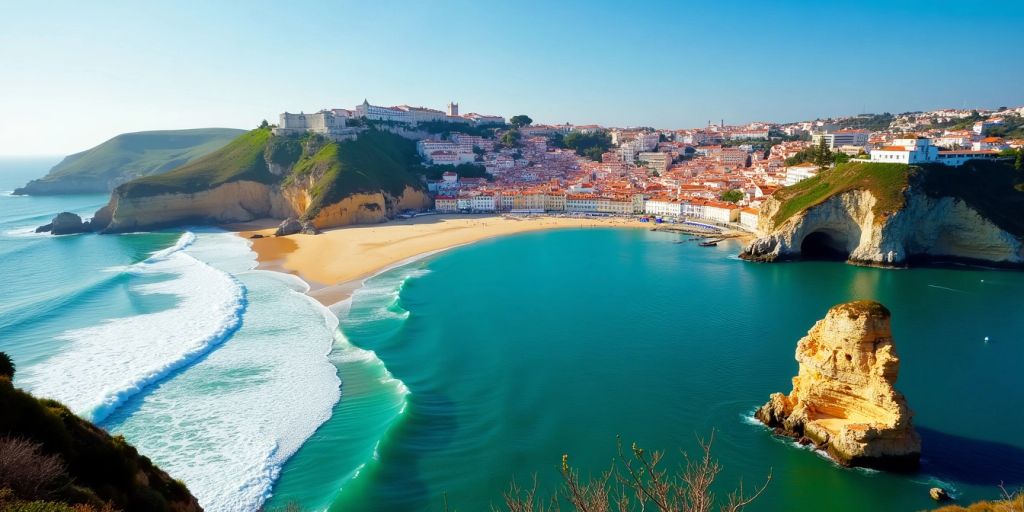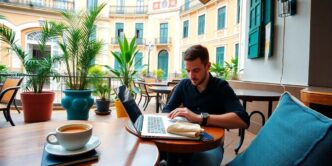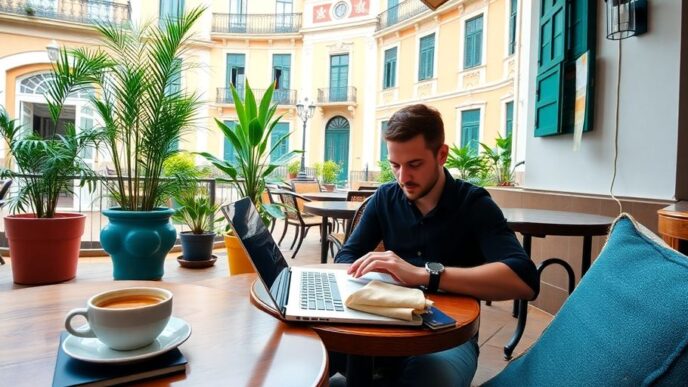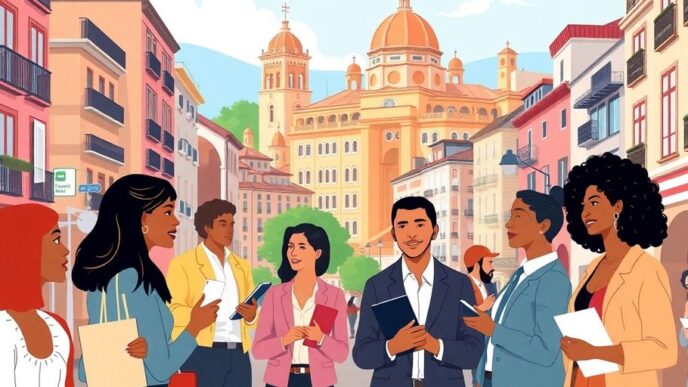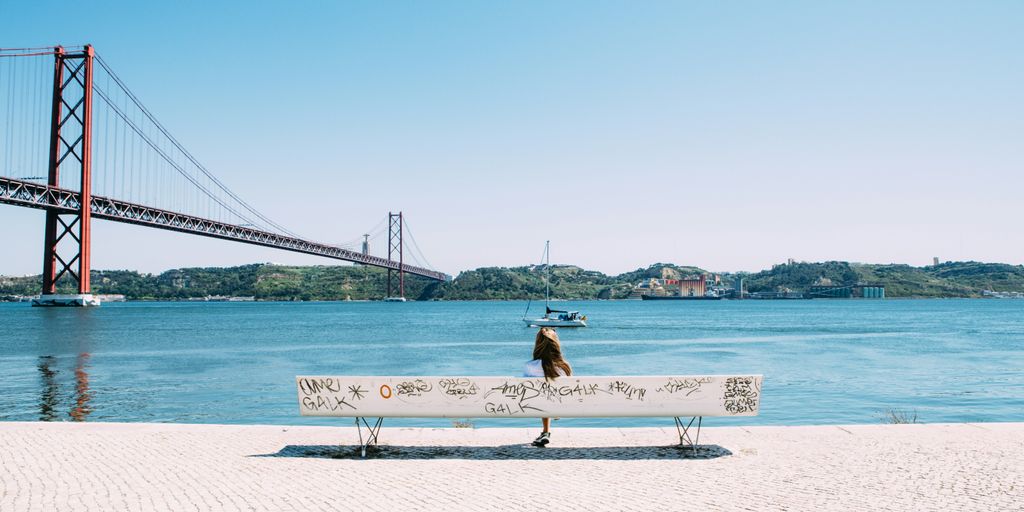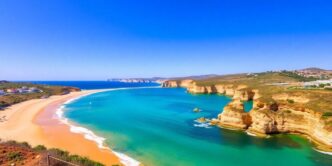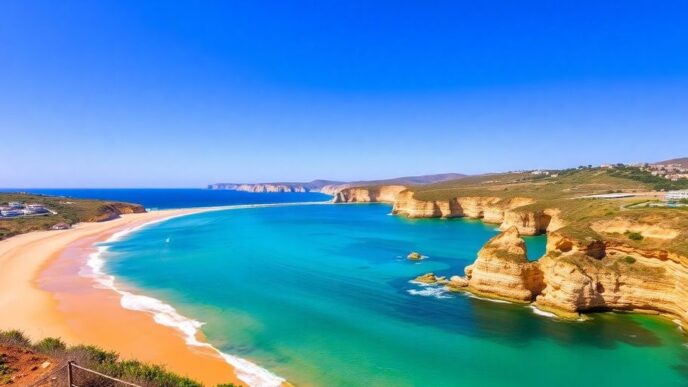Choosing the Right Visa for Your Relocation to Portugal
Understanding Different Visa Types
Portugal offers various visa options to meet different needs. Here are some key types:
- Golden Visa: For those with significant investment capital.
- Work Visa: For individuals with a job offer in Portugal.
- Student Visa: For those pursuing education in Portugal.
- Temporary Stay Visa: Ideal for short visits lasting up to one year.
Application Process and Requirements
To apply for a visa, follow these steps:
- Choose the Right Visa: Select based on your purpose, like work or study.
- Gather Documentation: Collect necessary documents, such as proof of income and health insurance.
- Submit Application: Apply at the Portuguese consulate in your home country.
Common Challenges and Solutions
Moving can be tough. Here are some common issues:
- Long Processing Times: Be patient; approvals can take several months.
- Document Requirements: Ensure all documents are complete and accurate.
- Language Barriers: Consider hiring a translator for assistance.
Understanding these visa options helps you choose the best path for your relocation. This ensures a smooth transition to living in Portugal.
Remember, the Golden Visa is a popular choice for investors, while the Temporary Stay Visa is best for short visits.
Finding Accommodation in Portugal
Temporary Housing Options
- Short-term rentals: Look for furnished apartments on platforms like Airbnb.
- Hostels: Affordable and social options for newcomers.
- Hotels: Good for initial stays while searching for a permanent home.
Renting vs. Buying Property
- Renting: Offers flexibility, especially for short stays.
- Buying: A solid investment for long-term residents.
- Considerations: Research local laws and market trends before deciding.
Tips for Securing a Lease
- Understand your rights: Know the rental laws in Portugal.
- Prepare documents: Have your passport and NIF ready.
- Inspect the property: Always visit before signing a lease.
Finding a home in Portugal can be exciting. With various options available, you can choose what suits you best. Remember to explore the ultimate guide to living in Portugal for more insights on housing and community integration.
Navigating the Portuguese Bureaucracy
Registering for Residency
To live in Portugal, you must register for residency. Here’s how:
- Gather Documents: Collect your passport, visa, and proof of address.
- Visit SEF: Go to the Immigration Authorities (SEF) to submit your application.
- Receive Confirmation: Wait for your residency card, which allows you to stay long-term.
Obtaining a Tax Identification Number (NIF)
The NIF is essential for many activities in Portugal. Follow these steps:
- Visit Tax Office: Go to the local Tax Office (Autoridade Tributária).
- Provide Documents: Show your passport and proof of address.
- Get Your NIF: You will receive your NIF immediately, which is crucial for banking and taxes.
Understanding Local Laws and Regulations
Familiarize yourself with Portuguese laws to avoid issues. Here are key points:
- Driving Rules: Know the traffic laws and speed limits.
- Housing Regulations: Understand tenant rights and landlord responsibilities.
- Cultural Norms: Respect local customs and traditions to integrate smoothly.
Navigating the bureaucracy can be challenging, but with the right information, you can make it easier. Remember, expats in Portugal should stay organized and patient during this process.
Integrating into Portuguese Society
Learning the Portuguese Language
Mastering Portuguese is essential for a smooth transition. Here are some tips:
- Practice daily: Engage in conversations with locals.
- Use diverse resources: Listen to podcasts and watch movies.
- Write regularly: Keep a journal in Portuguese.
Understanding Cultural Norms
Embracing local customs helps you fit in. Key points include:
- Respect for elders: Use titles like Senhor and Senhora.
- Family values: Expect large family gatherings.
- Engaging conversations: Join discussions, even if they seem lively.
Building a Social Network
Connecting with others enriches your experience. Consider these options:
- Join local clubs: Participate in community events.
- Attend cultural festivals: Immerse yourself in traditions.
- Visit local markets: Meet people and enjoy fresh produce.
Integrating into Portuguese society enhances your relocation experience. Embrace the culture and make connections!
Managing Practical Aspects of Daily Life
Healthcare System Overview
Portugal has a public healthcare system for all residents. Many expats choose private health insurance for better service. Here are some key points:
- Public healthcare is accessible but may have long wait times.
- Private insurance offers quicker appointments and more options.
- Emergency services are available through 112.
Education Options for Families
If you have children, consider the education system. Portugal has both public and private schools. Here are some options:
- Public schools are free and offer quality education.
- Private schools may have tuition fees but often provide smaller class sizes.
- International schools are available in major cities for expats.
Public Transportation and Driving
Portugal has a reliable public transport system. If you prefer driving, here’s what you need to know:
- Buses, trams, and trains connect major cities.
- A Portuguese driving license is required after six months.
- Public transport is affordable and efficient, making it easy to get around.
Embracing these practical aspects will help you settle in smoothly. Enjoy the affordable cost of living and vibrant culture as you adapt to your new life in Portugal!
Financial Considerations for Expats
Cost of Living in Portugal
Living in Portugal can be affordable. Here are some key points:
- Housing Costs: Prices vary by region. Lisbon is pricier than Porto.
- Utilities: Generally low, making monthly bills manageable.
- Groceries: Cheaper than in many Western countries.
Banking and Taxes
Managing finances is crucial. Consider these aspects:
- Opening a Bank Account: Most banks need proof of residency.
- Tax Residency: Stay over 183 days to be a tax resident.
- Income Tax Rates: Range from 14.5% to 48%.
Employment and Business Opportunities
Portugal offers various job options. Here’s what to know:
- Job Market: Growing sectors include tech and tourism.
- Self-Employment: Many expats start their own businesses.
- NHR Benefits: The Non-Habitual Resident status can lower your tax bill.
Understanding these financial aspects will help you settle in smoothly. Enjoy your new life in Portugal!
Exploring Lifestyle and Leisure in Portugal
Popular Destinations and Activities
Portugal is full of amazing places to visit. Here are some highlights:
- Lisbon: A vibrant city with historic sites and lively neighborhoods.
- Porto: Known for its stunning architecture and rich culture.
- Algarve: Famous for its beautiful beaches and outdoor activities.
Local Cuisine and Dining
Food is a big part of Portuguese culture. Here are some must-try dishes:
- Bacalhau à Brás: A delicious codfish dish.
- Pastéis de Nata: Sweet custard tarts that are a local favorite.
- Francesinha: A hearty sandwich from Porto.
Festivals and Public Holidays
Portugal celebrates many festivals throughout the year. Some popular ones include:
- Carnival: A lively celebration before Lent.
- Festa de São João: A summer festival in Porto with fireworks.
- Festa de Santo António: A street festival in Lisbon with music and dancing.
Portugal offers a rich lifestyle with a strong sense of community. You can discover the best locations in Algarve for your next vacation and enjoy the relaxed pace of life here.

